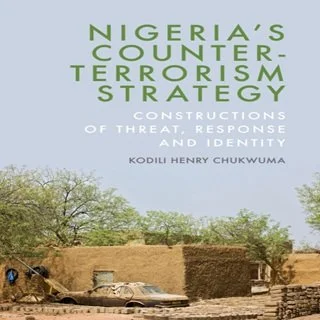By Kodili Henry Chukwuma
Offers a critical examination of Nigeria’s counter-terrorism policy as a political activity of identity construction
Draws upon archival material to offer a discursive analysis of Nigeria’s counter-terrorism strategy
Considers the construction of terrorist threat and identity considering specific colonial and post-colonial histories, realities and agency
Explores the official discourse on counter-terrorism as produced by Nigeria’s federal executive
Examines the productivity and effects of the official discourse
This book critically engages with Nigeria's counter-terrorism strategy as a means of identity construction. Drawing on a wealth of archival materials, Kodili Chukwuma analyses how the federal government articulates and justifies its counter-terrorism policy against specific ‘terrorist’ groups such as Boko Haram in order to construct Nigeria's identity. He argues that the designation of particular terrorist threats as a new form of terrorism in Nigeria – and beyond – enables state counter-terrorism interventions. Revealing the complexities of Nigeria's counter-terrorist strategy, this book sheds new light on critical terrorism and critical security studies in a key postcolonial context.
Edinburgh University Press, 2025. 216p.


